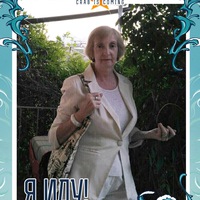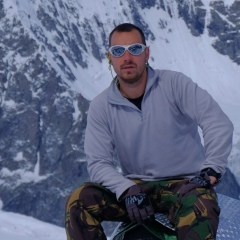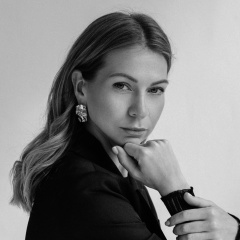#existential_monday@senbossya
Психотерапия для пациентов, страдающих от навязчивых экзистенциальных мыслей.
В США набирает популярность новая услуга - психотерапия экзистенциальных мыслей. Основы этого направления терапии были заложены в 1943 году в работах Жана-Поля Сартра, писавшего, что "люди обречены быть свободными". Осознание и страх смерти заставляют нас постоянно делать сознательный выбор о том как жить, что является - высшей свободой.
Идеи Сартра эволюционировали в методологию терапии экзистенциализма после Второй мировой войны. Viktor Frankl, после освобождения из концентрационного лагеря, в 1946 году написал книгу Man’s Search for Meaning (Мужчина в поисках Смысла), в которой обозначил основы Логотерапии - метода для создания смыслов.
Американский философ Rollo May в 1950х годах популяризировал эти Европейские концепции в США и назвал их "экзистенциальным гуманизмом".
В 80х годах Irvin Yalom, профессор Стэнфордского Университета вывел 4 элемента, ставшие базисом терапии - смерть, смысл (значение), изоляция, и свобода.
Направление медленно набирает популярность к 2016 году существовало как минимум 136 специализированных институтов в 43 странах и как минимум в 46 странах практиковали лицензированные терапевты. Сейчас существуют специализированные клиники и исследовательские организации, работающие в данном направлении, приведу пару примеров:
+ Stadter and Prelinger Psychotherapy and Consultation - частная клиника, специализирующаяся на терапии экзистенциализма.
http://www.stadterandprelinger.com/
+ Existential Humanistic Institute (San Francisco) - институт, занимающийся подготовкой специалистов в области терапии экзистенциализма
http://www.ehinstitute.org/
+ International Institute of Existential-Humanistic Psychology - международная исследовательская организация.
http://iiehp.org/
+ 2-й World Congress of Existential Therapy (Аргентина, Buenos Aires) - проводится Ассоциацией Экзистенциальных терапевтов ALPE
https://www.alpexistencial.com/
+ North Dakota State University проводит исследования в сфере экзистенциальной психологии.
+ University of Roehampton (UK) проводит исследования в сфере экзистенциальной психологии.
Проведённые исследования доказывают эффективность терапии для таких групп пациентов, как: больные раковыми заболеваниями поздних стадий, заключенные, пожилые люди проживающие в домах для престарелых.
Журналист Faith Hill, работающая в журнале The Atlantic прошла экзистенциальную терапию и записала советы, которые терапевт ей давала в ходе сеанса, вот они:
1) Изучите себя, как личность. Задумайтесь, что делает вас - самим собой. Чем лучше вы понимаете свою индивидуальность - тем больше вы её цените.
2) Ищите юмор в своих экзистенциальных страхах. Страхи иррациональны, от того могут восприниматься, как нечто "нелепое". Если научиться смеяться над своими страхами, над фактом того, что вас беспокоит экзистенциальный ужас - то жить будет проще.
3) Вам стоит принять неприятную правду. Скажите себе: "Абсолютной истины действительно не существует. Да, мы всё равно пытаемся её найти, но всё время поиски оканчиваются - провалом. Я на самом деле - умру, это неизбежно".
и это всё....
Источник: http://www.theatlantic.com/health/archive/2019/01/existential-therapy-you-can-ask-big-questions/579292/
P.S. Картинки с сайта http://existentialcomics.com
Психотерапия для пациентов, страдающих от навязчивых экзистенциальных мыслей.
В США набирает популярность новая услуга - психотерапия экзистенциальных мыслей. Основы этого направления терапии были заложены в 1943 году в работах Жана-Поля Сартра, писавшего, что "люди обречены быть свободными". Осознание и страх смерти заставляют нас постоянно делать сознательный выбор о том как жить, что является - высшей свободой.
Идеи Сартра эволюционировали в методологию терапии экзистенциализма после Второй мировой войны. Viktor Frankl, после освобождения из концентрационного лагеря, в 1946 году написал книгу Man’s Search for Meaning (Мужчина в поисках Смысла), в которой обозначил основы Логотерапии - метода для создания смыслов.
Американский философ Rollo May в 1950х годах популяризировал эти Европейские концепции в США и назвал их "экзистенциальным гуманизмом".
В 80х годах Irvin Yalom, профессор Стэнфордского Университета вывел 4 элемента, ставшие базисом терапии - смерть, смысл (значение), изоляция, и свобода.
Направление медленно набирает популярность к 2016 году существовало как минимум 136 специализированных институтов в 43 странах и как минимум в 46 странах практиковали лицензированные терапевты. Сейчас существуют специализированные клиники и исследовательские организации, работающие в данном направлении, приведу пару примеров:
+ Stadter and Prelinger Psychotherapy and Consultation - частная клиника, специализирующаяся на терапии экзистенциализма.
http://www.stadterandprelinger.com/
+ Existential Humanistic Institute (San Francisco) - институт, занимающийся подготовкой специалистов в области терапии экзистенциализма
http://www.ehinstitute.org/
+ International Institute of Existential-Humanistic Psychology - международная исследовательская организация.
http://iiehp.org/
+ 2-й World Congress of Existential Therapy (Аргентина, Buenos Aires) - проводится Ассоциацией Экзистенциальных терапевтов ALPE
https://www.alpexistencial.com/
+ North Dakota State University проводит исследования в сфере экзистенциальной психологии.
+ University of Roehampton (UK) проводит исследования в сфере экзистенциальной психологии.
Проведённые исследования доказывают эффективность терапии для таких групп пациентов, как: больные раковыми заболеваниями поздних стадий, заключенные, пожилые люди проживающие в домах для престарелых.
Журналист Faith Hill, работающая в журнале The Atlantic прошла экзистенциальную терапию и записала советы, которые терапевт ей давала в ходе сеанса, вот они:
1) Изучите себя, как личность. Задумайтесь, что делает вас - самим собой. Чем лучше вы понимаете свою индивидуальность - тем больше вы её цените.
2) Ищите юмор в своих экзистенциальных страхах. Страхи иррациональны, от того могут восприниматься, как нечто "нелепое". Если научиться смеяться над своими страхами, над фактом того, что вас беспокоит экзистенциальный ужас - то жить будет проще.
3) Вам стоит принять неприятную правду. Скажите себе: "Абсолютной истины действительно не существует. Да, мы всё равно пытаемся её найти, но всё время поиски оканчиваются - провалом. Я на самом деле - умру, это неизбежно".
и это всё....
Источник: http://www.theatlantic.com/health/archive/2019/01/existential-therapy-you-can-ask-big-questions/579292/
P.S. Картинки с сайта http://existentialcomics.com
# existential_monday @ senbossya
Psychotherapy for patients suffering from obsessive existential thoughts.
In the United States, a new service is gaining popularity - the psychotherapy of existential thoughts. The foundations of this area of therapy were laid in 1943 in the works of Jean-Paul Sartre, who wrote that "people are doomed to be free." Awareness and fear of death make us constantly make conscious choices about how to live, which is - the highest freedom.
Sartre's ideas evolved into a methodology for the treatment of existentialism after World War II. Viktor Frankl, after his release from the concentration camp, in 1946 wrote the book Man’s Search for Meaning, in which he outlined the basics of Logotherapy - a method for creating meanings.
The American philosopher Rollo May in the 1950s popularized these European concepts in the United States and called them "existential humanism."
In the 80s, Irvin Yalom, a professor at Stanford University, deduced 4 elements that became the basis of therapy - death, meaning, isolation, and freedom.
The direction is slowly gaining popularity by 2016. At least 136 specialized institutes existed in 43 countries and licensed therapists practiced in at least 46 countries. Now there are specialized clinics and research organizations working in this direction, I will give a couple of examples:
+ Stadter and Prelinger Psychotherapy and Consultation is a private clinic specializing in the therapy of existentialism.
http://www.stadterandprelinger.com/
+ Existential Humanistic Institute (San Francisco) - an institution that trains specialists in the treatment of existentialism
http://www.ehinstitute.org/
+ International Institute of Existential-Humanistic Psychology - an international research organization.
http://iiehp.org/
+ 2nd World Congress of Existential Therapy (Argentina, Buenos Aires) - conducted by the Association of Existential Therapists ALPE
https://www.alpexistencial.com/
+ North Dakota State University conducts research in the field of existential psychology.
+ University of Roehampton (UK) conducts research in the field of existential psychology.
Studies have proven the effectiveness of therapy for such groups of patients as: patients with advanced stage cancer, prisoners, elderly people living in nursing homes.
Journalist Faith Hill, working in The Atlantic magazine, underwent existential therapy and wrote down the advice therapist gave her during the session, here they are:
1) Examine yourself as a person. Think about what makes you - yourself. The better you understand your personality, the more you value it.
2) Seek humor in your existential fears. Fears are irrational, from which they can be perceived as something "ridiculous." If you learn to laugh at your fears, at the fact that you are worried about existential horror, then it will be easier to live.
3) You should accept the unpleasant truth. Tell yourself: "Absolute truth really does not exist. Yes, we still try to find it, but all the time the search ends in failure. I actually die, it is inevitable."
and it's all....
Source: http://www.theatlantic.com/health/archive/2019/01/existential-therapy-you-can-ask-big-questions/579292/
P.S. Pictures from http://existentialcomics.com
Psychotherapy for patients suffering from obsessive existential thoughts.
In the United States, a new service is gaining popularity - the psychotherapy of existential thoughts. The foundations of this area of therapy were laid in 1943 in the works of Jean-Paul Sartre, who wrote that "people are doomed to be free." Awareness and fear of death make us constantly make conscious choices about how to live, which is - the highest freedom.
Sartre's ideas evolved into a methodology for the treatment of existentialism after World War II. Viktor Frankl, after his release from the concentration camp, in 1946 wrote the book Man’s Search for Meaning, in which he outlined the basics of Logotherapy - a method for creating meanings.
The American philosopher Rollo May in the 1950s popularized these European concepts in the United States and called them "existential humanism."
In the 80s, Irvin Yalom, a professor at Stanford University, deduced 4 elements that became the basis of therapy - death, meaning, isolation, and freedom.
The direction is slowly gaining popularity by 2016. At least 136 specialized institutes existed in 43 countries and licensed therapists practiced in at least 46 countries. Now there are specialized clinics and research organizations working in this direction, I will give a couple of examples:
+ Stadter and Prelinger Psychotherapy and Consultation is a private clinic specializing in the therapy of existentialism.
http://www.stadterandprelinger.com/
+ Existential Humanistic Institute (San Francisco) - an institution that trains specialists in the treatment of existentialism
http://www.ehinstitute.org/
+ International Institute of Existential-Humanistic Psychology - an international research organization.
http://iiehp.org/
+ 2nd World Congress of Existential Therapy (Argentina, Buenos Aires) - conducted by the Association of Existential Therapists ALPE
https://www.alpexistencial.com/
+ North Dakota State University conducts research in the field of existential psychology.
+ University of Roehampton (UK) conducts research in the field of existential psychology.
Studies have proven the effectiveness of therapy for such groups of patients as: patients with advanced stage cancer, prisoners, elderly people living in nursing homes.
Journalist Faith Hill, working in The Atlantic magazine, underwent existential therapy and wrote down the advice therapist gave her during the session, here they are:
1) Examine yourself as a person. Think about what makes you - yourself. The better you understand your personality, the more you value it.
2) Seek humor in your existential fears. Fears are irrational, from which they can be perceived as something "ridiculous." If you learn to laugh at your fears, at the fact that you are worried about existential horror, then it will be easier to live.
3) You should accept the unpleasant truth. Tell yourself: "Absolute truth really does not exist. Yes, we still try to find it, but all the time the search ends in failure. I actually die, it is inevitable."
and it's all....
Source: http://www.theatlantic.com/health/archive/2019/01/existential-therapy-you-can-ask-big-questions/579292/
P.S. Pictures from http://existentialcomics.com




У записи 6 лайков,
0 репостов,
292 просмотров.
0 репостов,
292 просмотров.
Эту запись оставил(а) на своей стене Артур Шумский



























